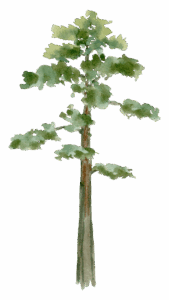To plant is to hope
To restore is to heal
To protect is to love
The Bishop’s Committee on Creation Care, together with Bishop Andrew and Mary Asbil, invites Anglicans in the Diocese of Toronto to join the Communion Forest Movement, which was initiated at the global Anglican Lambeth Conference in 2022.
The Communion Forest is a global initiative comprising local activities of forest protection, tree growing and eco-system restoration undertaken by provinces, dioceses and individual churches across the Anglican Communion to safeguard creation.
The Communion Forest invites us to practical and symbolic acts of hope. In practice, it’s active engagement in growing trees, preserving biodiversity, and providing and protecting habitat. Symbolically, it embodies our commitment to God’s creation articulated in our baptismal covenant and the Anglican Marks of Mission.
Even in the most urban parts of our diocese, we can care for the earth in liturgy, in advocacy, in protective action, in growing and tending creation. We hope you will prayerfully consider how your parish might participate in the Communion Forest Movement at this time of ecological crisis and climate injustice.
Getting started
Visit communionforest.org and click on the “Get Started” tab. This will take you to a useful guide for parishes considering how they might join the movement. Consider making your Communion Forest initiative part of your parish’s focus for the Season of Creation!
Start by gathering wisdom and knowledge about your local ecosystem or watershed. Ask how you can conserve, protect and restore what is already there.
Keep in mind that there’s room to grow with this initiative, with God’s help.
Conserve – get involved in looking after and preserving a local ecosystem.
Protect – advocate and act to stop deforestation and prevent the destruction of other habitats.
Restore – restore a piece of waste land or other degraded environment. Protection and restoration should be considered ahead of establishing something new.
Grow – start a forest initiative on church land or in (and with) the wider community. Where something new is set up, the emphasis should be on growing, not just planting. It’s about growing the right kind of tree in the right place for the right purpose, and caring for it.
Multiply – help others get involved. Churches can be “multipliers” by setting up a tree or plant nursery to enable wider participation in afforestation.
Liturgical resources
 Tree planting liturgy and prayers on the Communion Forest website.
Tree planting liturgy and prayers on the Communion Forest website.
Creation care liturgies from the Creation Matters group at Redeemer, Bloor St.
A Rocha Canada resources for Watershed Discipleship, Good Seed Sunday and prayers for and with creation
Salal and Cedar: a Wild Church in the Diocese of New Westminster that produces a preaching resource called The Wild Lectionary, as well as liturgical resources and Wonder Box curricula, which are suitable for all ages
The Wild Church Network: an emerging community of eco-spiritual leaders, organized to nourish the spread and growth of Wild Churches.
Liturgical resources from the Anglican Communion Environmental Network
Don’t forget the Hiking Church and other worship resources on our own diocesan Creation Care page!
Trees and forests
Diana Beresford-Kroeger has been called the Jane Goodall of Trees. Visit her website to learn about her books and her documentary, Call of the Forest. It’s also worth watching her videos, including one on how to plant a tree.
The Tree Atlas: a government of Ontario resource with some good information on native species and planting tips
Ontario Trees and Shrubs: a good identification tool
Green Communities Canada: encourages micro-forest planting
LEAF (Local Enhancement and Appreciation of Forests): an organization working in Toronto, York Region and Durham Region to plant native trees and engage citizens in urban forest stewardship
